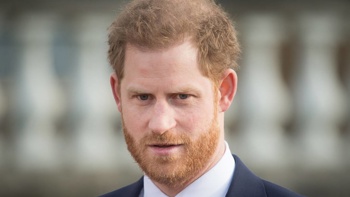
There's about to be a surge in shut-ins, after the Prime Minister announced everyone arriving from overseas now must self-isolate for 14 days.
But if you're one of the unlucky ones, you don't necessarily have to lock yourself in your bedroom for two weeks.
Self-isolation will look different depending on each person's living situation, University of Otago epidemiologist Professor Michael Baker says.
Baker told Newstalk ZB people should think about what they were trying to achieve in avoiding other people getting infected - whether flatmates, family or random strangers.
"It's not home detention - people can wander round the streets and get some exercise. The thing is about not infecting other people if you might be in the early stages of incubating this infection."
People could transmit the virus before getting "significant symptoms", he said.
Jacinda Ardern announced on Saturday that from midnight Sunday almost all travellers would have to self-isolate for two weeks on arrival in New Zealand.
Most Pacific Islands are excluded from the restrictions.
More than 10,500 people have already registered for self-isolation in New Zealand. The Prime Minister said there would likely be spot checks on people who were self-isolating to ensure it's being adhered to.
Everyone who is going to into self-isolation should register their details with Healthline by calling 0800 358 5453.
Baker pointed to the Ministry of Health website for good tips for self-isolating.
Within the home, these include:
- Not sharing dishes, linen or eating utensils, and washing them thoroughly once used
- Using a different bathroom to other residents, if possible, or cleaning a shared bathroom carefully after use
- Avoiding face-to-face contact closer than one metre for more than 15 minutes
/media.nzherald.co.nz/webcontent/infographics/3778/VIRUS_NEEDTOKNOW.jpg)
Assuming these precautions are taken, other residents don't need to self-isolate, the ministry says.
Speaking on Q+A this morning Ardern advised those arriving in the country should use private transport to get home, rather than taxis.
But Baker said those who could not arrange this should talk to arrivals staff about how to get to their homes safely - especially if they needed to use public transport or a domestic flight.
The Ministry of Health advises avoiding rush hour crowds on public transport, using hand sanitiser regularly and getting a window seat by yourself.
The usual advice about covering your mouth or nose with a tissue when coughing or sneezing or using your elbow also applies.
"Remember this is not for people who are actively infectious, or infected at this point, this is for people who are in a quarantine period," Baker said. "It would be different if someone has symptoms - that would be a whole other approach."
The symptoms of Covid-19 are cough, fever, and shortness of breath. If people have symptoms they should contact Healthline for further information.
New Zealand has six confirmed cases of Covid-19 but has not yet seen any confirmed community transmission.
Worldwide there have been more than 155,000 cases, with more than 5800 deaths. However more than 72,000 people have recovered from the virus.
Better an economic shock than a pandemic - health experts
It's expected the new restrictions will have major repercussions for Kiwis' jobs and the economy, making a recession all but inevitable.
However the trade-off is a much worse situation, experts say. New travel restrictions will hurt the economy but could stop a pandemic overwhelming the country.
Baker said the entire health sector would welcome the restrictions.
"The alternative is a very different scenario for New Zealand where we would at a certain point have a pandemic wash over the whole country and potentially infect quite a high proportion of people."
Some of those people would be serious ill - and the health system would not cope, especially when it came to treating pneumonia and intensive-care cases. Overseas that was becoming obvious in places like Italy.
/arc-anglerfish-syd-prod-nzme.s3.amazonaws.com/public/UXX6NY54SVGHZMAA3ZFDTDQVCI.jpg)
The alternative to the travel restrictions was letting a pandemic "wash over" the country, Otago University epidemiologist Professor Michael Baker says. Photo / File
"Really this is new for all of us. No one alive today has experienced a pandemic on this scale so we are just not used to it," Baker said.
"Anyone looking ahead at what could happen, what we're trying to avoid would appreciate that the Government is really doing everything it can to prevent that scenario."
The self-isolation rules related to the "keep it out" phase of pandemic management, but Baker hoped there would be further announcements regarding how to "stamp it out" shortly.
That included upping New Zealand's ability to test for the virus, identifying cases so they could be isolated, and very swift effective follow-ups of contacts so they could be quarantined.
"The world is splitting now into countries that have not contained this virus ... and a small group of countries that have successfully contained Covid-19." That included Singapore and Taiwan and possibly South Korea and Japan.
"New Zealand really wants to be among those countries that have contained this pandemic," Baker said.
"It will require obvious huge national commitment and I'm really impressed that the Government is making these tough decisions now to contain this infection ... Hopefully the whole nation will get behind that move."
Infectious diseases expert Dr Siouxsie Wiles told the Science Media Centre the restrictions would hurt the economy but letting the virus take hold here would hurt more.
The move was exactly what was needed to limit the spread of the virus in New Zealand and the Pacific, Wiles said. Now the country needed to start preparing for how long those measures could be in place.
"As Professor Sir Robert Anderson, Chief Scientist to the UK Ministry of Defence, wrote in The Lancet just a few days ago, we mustn't stop doing what needs to be done too early just 'to mitigate economic impact'.
"Until a vaccine is ready, and that could take one to two years, we are all susceptible to this virus. If we turn our back for a minute, we'll could find ourselves in the position of countries like Italy."
Take your Radio, Podcasts and Music with you









